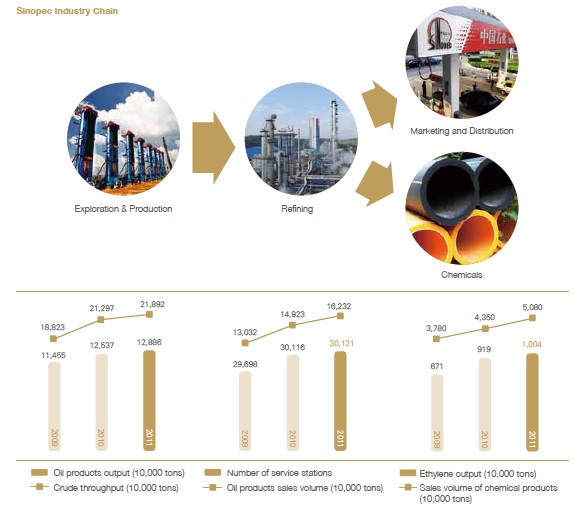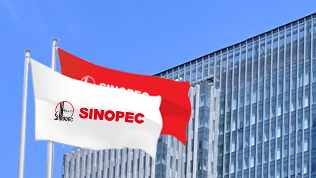Shaping an Integrated Value Chain
Before being used in people's daily life or as the feedstock for further production, oil and gas needs to be processed in refineries and petrochemical plants. While constantly strengthening the resource basis, Sinopec also focuses on research, production, distribution and marketing. With its unique integrated upstream and downstream businesses along the oil and gas value chain, Sinopec is able to provide energy and premium services for the clients.
Sinopec is the largest refiner in China and the second largest in the world. With the three refining and petrochemical clusters in the Bohai Bay region, Yangtze River delta and Pearl River delta, Sinopec has constantly fueled the robust economic growth in China. In 2011, Sinopec's primary processing capacity of crude oil reached 249 million tons per year with 219 million tons of crude throughput, up by 2.8% year on year.
Sinopec has the most extensive service station network, the largest storage capacity and the longest pipelines for oil products, fueling all types of vehicles including cars, trucks, motorcycles, ships and agricultural vehicles. By end 2011, the number of Sinopec-branded service stations reached 30,100, the storage capacity of oil product depots 14.75 million cubic meters, the total length of oil product pipelines 8,681 kilometers and the total handling capacity of crude oil jetties (with the capacity of each above 250,000 tons) 256 million tons per year. In 2011, domestic oil products sales volume was 162 million tons, up by 8.8% year on year. Retail volume exceeded 100 million tons for the first time, up by 14.4% year on year.
Sinopec is the largest producer and supplier of chemical products in China. In 2011, Sinopec's ethylene output reached 10.04 million tons, up by 9% year on year. Sales volume of chemical products increased by 16.8% on yearly basis to 50.8 million tons.


 Address
Address Post code
Post code Tel
Tel







 京公网安备11010502035639
京公网安备11010502035639